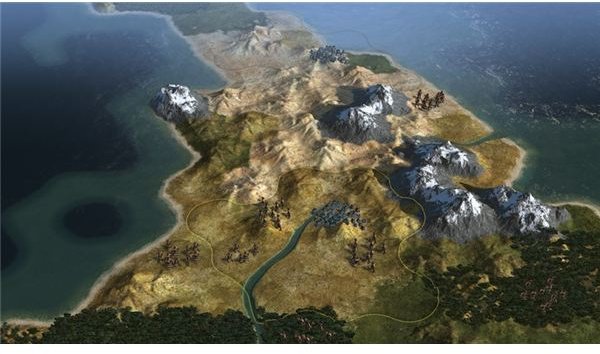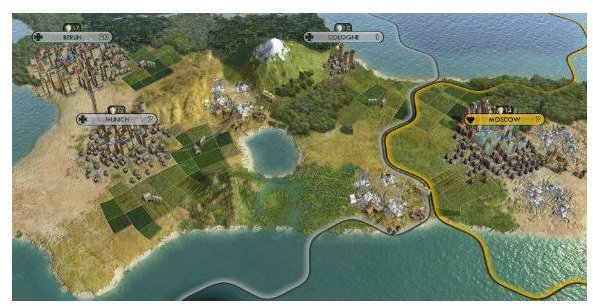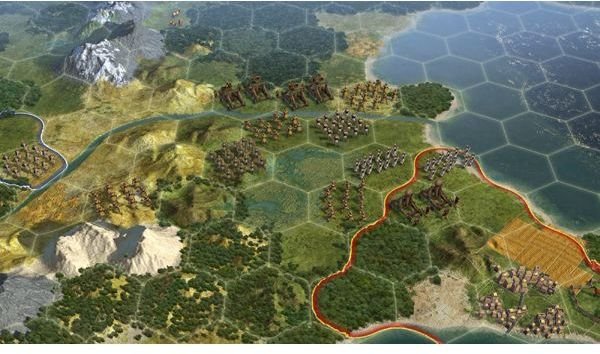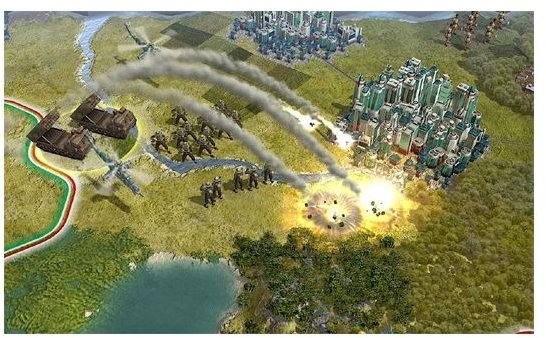A Complete Guide to City Building in Civilization 5

Civilization V Strategy: Advanced City Building
You’ve founded a few cities. Perhaps you’ve even played through several entire games of Civilization V. Now you want to tackle the more difficult levels in the game.
Doing so will require that your cities be very well managed. In this guide we’ll examine advanced techniques that give you the edge. If you’re a completely new player you should take a look at part 1 of this guide, which will help you grasp the fundamentals.
City Specialization - Still Important in Civilization V
Civilization V makes quite a few changes that dramatically alter how the game plays compared to previous titles in the Civilization franchise. Even so, however, one broad concept is still true – it is generally important to specialize your cities.
What do I mean by “specialize?” Specifically, I mean building cities so that they fulfill a function in your larger civilization that is required to achieve the victory conditions important to you.
Let’s say, for example, that you want to achieve a cultural victory. Cultural victory is often easier with small civilizations, so you may have settled five cities. You’ll want to build most or all of the cultural structures that you have access to. Those require gold to be maintained, however – a lot of it – so you devote three cities largely to gold production. To maximize gold production in these cities you build all of the economic improvements in them and you improve most of the tiles around them with trading posts. Of your remaining two cities one is focused on science, to help keep you technologically competitive, and another is focused on production so that you can build the wonders and military units you need.
Why You Must Specialize

Now, you may be wondering – why not just make all the cities you own great at everything? There are two reasons.
The first has to do with producing and maintaining buildings. Production resources are purposely harder to come by in Civilization V than in older Civilization titles. You can’t build everything because there just isn’t enough time to do so. Buildings also have upkeep fees that must be paid every turn. These fees quickly become prohibitively expense.
The second reason to specialize is the fact that many improvements have bonuses that provide percentage improvements. A Windmill, for example, gives a 15% bonus to production. That obviously will provide a greater benefit to a city with a base hammer income (production income in Civ is often called “hammers” because of the hammer icon used to represent it) of thirty than a hammer income of ten.
Why build a Windmill in a city with ten hammer income when you have to pay gold to maintain it every turn? That’s an investment that will never pay off. The same can be said of structures that prove a percentage bonus to gold income, science income and even food income.
Your Cities Should Go for the Gold

Another conclusion that is important to grasp is the importance of gold (as in the cash your civilization has on hand – not the luxury resource sometimes found on map tiles) in Civilization V. Gold – or money in any form – has always been important in the Civilization franchise because gold can be converted to many different things. You can buy units and buildings with gold. You can also bribe city-states and other nations with gold. The only things you can’t buy with gold are wonders and technologies.
This means that having a strong economy is often critical in Civilization V. The game’s advisors will actually direct you to spend gold if you have it, but they’re not always correct. Having a large cash reserve of one thousand or two thousand gold is sometimes critical. If someone declares war on you, for example, a stockpile of gold can quickly be converted to extra units or be used to upgrade old ones.
Fortunately, gold is rather easy to come by. Luxury resources are common and trading posts, which increase gold income by two, can be built almost anywhere. And they should be built almost everywhere. The game will often prompt you to build farms on every flat green tiles, but I recommend against this unless you need the extra food for a reason. It is easy to accidentally build a city’s population up to 20 or more only to find that it doesn’t produce much gold because all of the citizens are busy farming tiles that produce three or four food but only gold.
Learning to Manage Population

The population of your cities is something that you should watch closely no matter what kind of production your city specializes in. There is a definite “population trap” in Civilization V. Cities with a very large population require such a large food income that you may find them unable to specialize in anything but food, and since food can’t be transported from one city to the next this isn’t very useful.
Worse, the population of your cities is related to your civilization-wide level of happiness. A city that has a large population but fails to produce anything ends up becoming a drag on your civilization. It requires that you build happiness structures, which require production and gold to maintain, but doesn’t product much in return.
You do have the option to limit the growth of your cities in the game. You can do this by opening the city management panel and clicking the avoid growth option, or you can just turn of your city advisors and handle things yourself.
How do you know when a city’s population is large enough? In truth there is no hard-and-fast rule. You’ll need to examine your cities frequently and see what you have to gain by expanding your population and having extra citizens to place on extra tiles. If you’re already using all of the tiles in your city that you want to be able to use you may not have any reason to expand a city’s population.
On the other hand, keep in mind that having a high population gives you citizens who can be taken away from working tiles and instead placed into specialist positions. Be sure to see what specialist positions are available before cutting growth. Civilizations going for a scientific victory, for example, usually want to fill up all of the specialist positions made available by science buildings. This means they need cities with relatively high populations compared to, say, a civilization only interested in a domination victory.
Conclusion
These are not all of the advanced city management techniques in Civilization V, but this is a good place to start if you’re interested in advanced play. The lower difficulty levels in Civilization V provide plenty of room for error, but you need to exercise good city management if you want to conquer the tougher AI opponents.
This post is part of the series: The Complete Civilization 5 Guide
Are you a new player to Civilization 5 looking to learn the game? Or a veteran of Civilization 4 looking for some tips about what is new and different? This guide will help you become familiar with the mechanics of Civilization 5.
